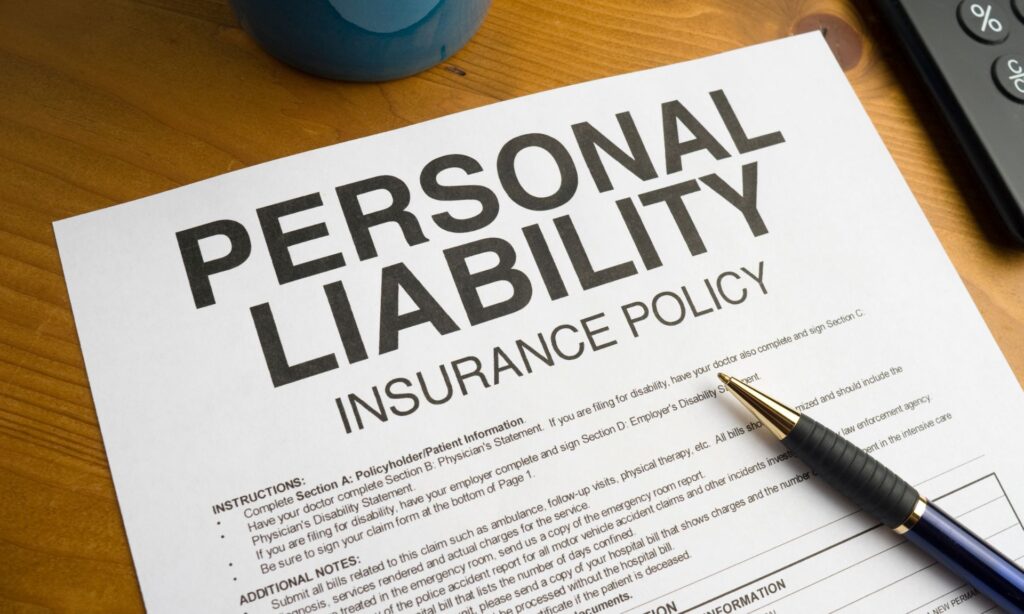Introduction

As a renter, you may think that your landlord’s insurance policy will cover you in case of accidents or incidents that occur within your rental property. Unfortunately, this is a common misconception. Landlord insurance policies typically only cover the building structure and the landlord’s liability, leaving you vulnerable to potential lawsuits or costly repairs. This is where personal liability insurance for renters comes into play, providing essential protection for your finances and peace of mind.
What is Personal Liability Insurance for Renters?
Personal liability insurance, also known as renters liability insurance, is a crucial component of a standard renters insurance policy. It is designed to protect you from the financial consequences of being held legally responsible for accidentally causing bodily injury or property damage to others.
If someone gets injured in your rented apartment or house, or if you accidentally damage someone else’s property, personal liability insurance can help cover the costs associated with medical expenses, legal fees, and repairs or replacements. Without this coverage, you could be faced with paying these expenses out of your own pocket, which can quickly become a financial burden.
What Does Personal Liability Insurance for Renters Cover?
Personal liability insurance for renters typically covers a wide range of scenarios where you may be found legally responsible for causing harm or damage to others. Here are some common situations where renters liability insurance can provide coverage:
Injuries to Guests: If a guest sustains an injury while visiting your rental property, such as slipping on a wet floor or tripping over a loose carpet, your personal liability insurance can help cover their medical expenses if you are found legally responsible.
Damage to Others’ Property: Accidents happen, and sometimes they can result in damage to someone else’s property. For example, if your child accidentally breaks a neighbor’s window while playing ball, your renters liability insurance can help pay for the repairs or replacement.
Pet-Related Incidents: As a pet owner, you are responsible for your furry friend’s actions. If your dog bites someone or causes damage to another person’s property, your personal liability insurance can help cover the costs associated with the incident.
Legal Fees and Court Costs: If someone decides to sue you for damages or injuries you are legally responsible for, your renters liability insurance can help cover the legal fees and court costs associated with defending yourself in court.
Libel and Slander: In some cases, personal liability insurance may also provide coverage if you are sued for libel or slander, which involves making false statements that damage someone’s reputation.
It’s important to note that personal liability insurance typically does not cover intentional acts of harm or damage, business-related activities, or injuries or damage to your own property or belongings.
READ ALSO: Liability Insurance for Contractors: Safeguarding Your Contracting Business
Conclusion
As a renter, personal liability insurance is an essential safeguard against the financial consequences of accidents or incidents that may occur within your rental property. It provides peace of mind by protecting you from the potentially astronomical costs of medical expenses, legal fees, and repairs or replacements if you are found legally responsible for causing harm or damage to others.
While personal liability insurance is often overlooked or misunderstood, it is a crucial component of a comprehensive renter’s insurance policy. By understanding the coverage and importance of personal liability insurance, you can make an informed decision to protect yourself and your assets. Don’t leave yourself vulnerable to the unexpected; invest in personal liability insurance as part of your renter’s insurance policy and enjoy the security it provides
FAQs
Is personal liability insurance required for renters?
While personal liability insurance is not legally required in most states, many landlords and property management companies will make it a condition of your lease agreement. Even if it’s not mandatory, obtaining personal liability insurance is highly recommended to protect yourself from unexpected expenses and lawsuits.
How much personal liability coverage do I need as a renter?
Most standard renters insurance policies typically provide a minimum of $100,000 in personal liability coverage. However, depending on your specific circumstances and the potential risks involved, you may want to consider increasing your coverage limits. Higher limits, such as $300,000 or $500,000, can provide additional protection in case of a significant claim or lawsuit.
Will my landlord’s insurance cover me?
No, your landlord’s insurance policy only covers the building structure and the landlord’s liability. It does not extend coverage to you as a tenant or your personal belongings. You need to purchase your own renters insurance policy, which includes personal liability coverage, to protect yourself.
Can I get personal liability insurance without renters insurance?
Personal liability insurance is typically included as part of a comprehensive renters insurance policy. While you may be able to purchase a standalone liability policy from some insurance providers, it is generally more cost-effective and convenient to bundle it with a renters insurance policy.
Does personal liability insurance cover intentional acts?
No, personal liability insurance for renters typically does not cover intentional acts of harm or damage. The coverage is designed to protect you from accidents and unintentional incidents where you are found legally responsible.
In another related article, Unraveling the Liability Insurance Requirements for Businesses




